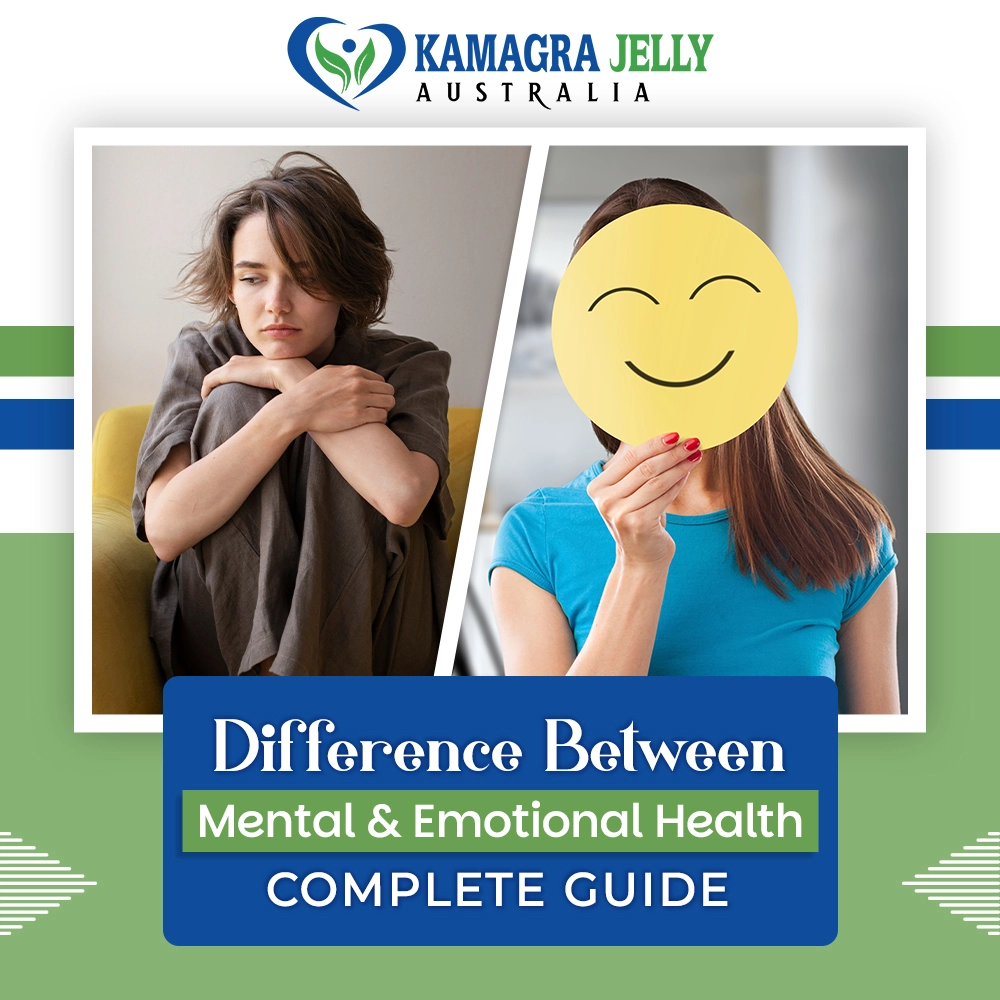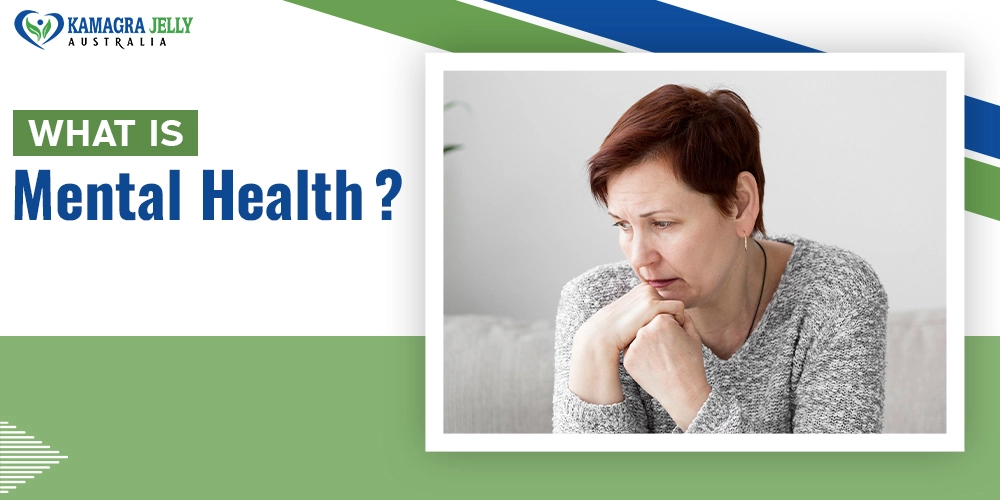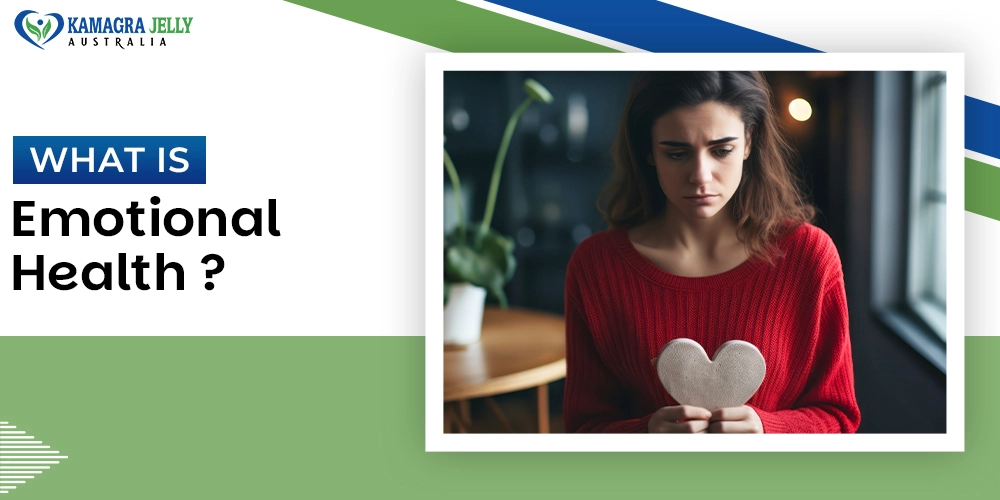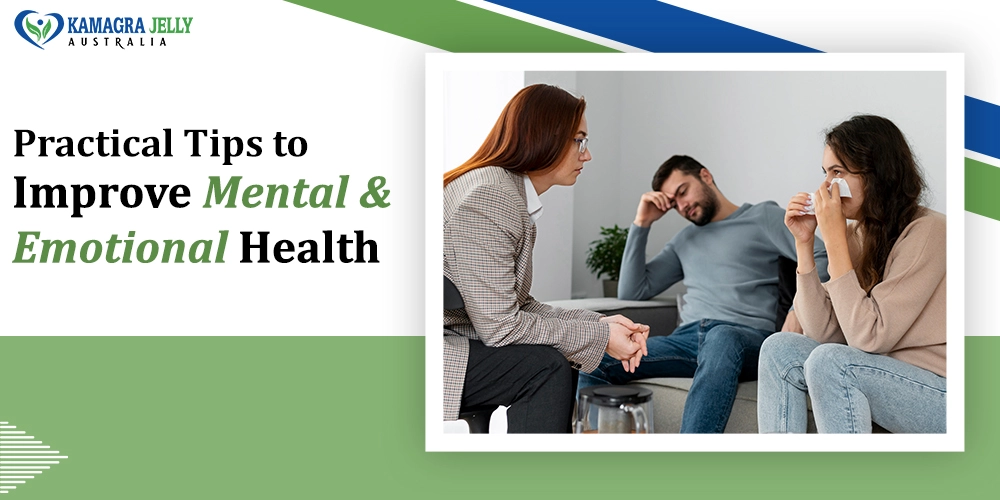
When people talk about heartiness, two terms frequently come up mental and emotional health. Numerous use them interchangeably, but they are not exactly the same. Understanding the difference between mental and emotional health is essential for erecting adaptability, perfecting connections, and leading a balanced life. Both are deeply connected, yet they concentrate on different confines of how we suppose, feel, and bear.
What’s Mental Health?

It includes how you reuse information, make opinions, break problems, and handle diurnal stressors. Someone with good mental health generally demonstrates clarity in thinking, rational decision timber, and the capability to concentrate on tasks without being overwhelmed.
Key aspects of mental health include:
- Cognitive capacities (memory, focus, and logic)
- Problem working and decision making chops
- Capability to acclimatize to challenges
- Managing stress in a logical manner
For illustration, if you’re facing a career reversal, your mental health determines whether you can look at the situation objectively and develop a plan to move forward.
What’s Emotional Health?

Emotional health, on the other hand, relates to your capability to feel, express, and manage heartstrings in a healthy way. It’s about understanding your heartstrings and responding to them constructively, rather than being controlled by them.
Key aspects of emotional health include:
- Mindfulness of your passions (sadness, joy, wrathfulness, fear, etc.)
- Capability to express feelings meetly
- Structure and maintaining healthy connections
- Adaptability in handling emotional lapses
For illustration, if a close friend disappoints you, your emotional health will impact how you deal with the hurt whether you express your heartstrings calmly, communicate openly, or bottle up heartstrings in unhealthy ways.
The Key Difference Between Mental and Emotional Health
Although they lap, the difference between mental and emotional health falsehoods in focus:
- Mental health is about allowing and cognitive functions.
- Emotional health is about feeling and managing feelings.
Think of it this way mental health helps you process what’s passing, while emotional health helps you respond to how you feel about it.
For example:
- If you mental health helps you assess your finances and make new career plans, If you lose your job.
- Your emotional health helps you manage passions of disappointment, rejection, or anxiety that come with it.
Why Kamagra Oral Jelly Matters for Mental and Emotional Health?
At first regard, you may wonder what Kamagra Oral Jelly has to do with mental and emotional health. The connection is deeper than it appears. Erectile dysfunction is not just a physical issue; it also affects confidence, tone, regard, and connections. When a man struggles with performance, it can lead to anxiety, stress, and indeed depression, directly impacting mental health.
Here’s how Kamagra Oral Jelly plays a supportive role:
- Boosts confidence: Recovering control over sexual performance helps reduce performance anxiety and restores tone belief.
- Strengthens connections: A healthy coitus life improves closeness and reduces emotional strain between mates.
- Supports emotional balance: By removing passions of inadequacy, Kamagra helps men witness more positive feelings, perfecting overall emotional health.
- Enhances mental clarity: When the burden of sexual solicitude is lifted, men frequently find it easier to concentrate on work, decision-making, and diurnal challenges.
Kamagra Oral Jelly is designed to address a physical concern, its impact on mental and emotional health is unarguable. A more confident, emotionally stable existent is better equipped to handle life’s challenges and enjoy healthier connections.
👉 Expert Opinion on Erectile Dysfunction Patients 👈
Why Mental and Emotional Health Are Connected? Know
While distinct, mental and emotional health are nearly linked. Poor mental health can affect emotional stability, and poor emotional health can cloud your thinking. For illustration
- High stress (Mental health challenge) can lead to perversity and wrathfulness (Emotional Health Issue).
- Bottling up feelings (Emotional Health Problem) can increase anxiety or depression (Mental health issue).
Taking care of one frequently strengthens the other, making it important to nurture both.
Signs of Good Mental and Emotional Health
To more understand the difference between mental and emotional health, let’s look at what strong health in both areas looks like
Signs of good mental health
- Capability to concentrate and make opinions
- Rational response to challenges
- Low situations of anxiety and overthinking
- Clear problem working chops
Signs of good emotional health
- Expressing feelings in a healthy manner
- Strong empathy and compassion for others
- Capability to handle disappointment without breakdowns
- Positive outlook on life, indeed during struggles
Practical Tips to Improve Mental and Emotional Health

Since both are vital for overall well-being, then are some practicable ways to strengthen them:
For Mental Health
- Practice awareness: Focus on the present moment to reduce overthinking.
- Exercise regularly: Physical exertion improves brain function and lowers stress.
- Get enough sleep: A well-rested brain makes better opinions.
- Challenge your mind: Read, break mystifications, or learn new chops.
For Emotional Health
- Identify your feelings: Journaling helps in feting what you feel and why.
- Express feelings constructively: Talk to trusted musketeers or therapists.
- Figure emotional adaptability: Accept lapses as part of growth.
- Practice gratefulness: Focus on cons to balance negative feelings.
By fastening on both, you strengthen not only your capability to suppose easily but also to live with lesser emotional balance.
Mental and Emotional Health in connections
One of the stylish ways to see the difference between mental and emotional health is in connections. Good mental health helps you logically dissect conflicts and find results, while emotional health helps you empathize and express your passions without hostility.
For case, during a disagreement with a mate:
- Mental health helps you suppose about what touched off the argument.
- Emotional health helps you communicate your hurt passions without blame.
Balancing both is what creates healthier and further meaningful connections.
Why It Matters to Distinguish Between the Two
Understanding the difference between mental and emotional health allows you to fete where you might need redundant care. Some people are great thinkers but struggle to express feelings. Others feel deeply but have difficulty assessing situations. Knowing the gap helps in seeking the right support, whether through remedies, tone care practices, or life changes.
-:Frequently Asked Questions:-
What is the difference between internal health and internal illness?
Ans: Mental health is a general state where your mind functions duly, helping you suppose, learn, and make opinions. Everyone has internal health, but not everyone has an internal illness.
Why can’t I control my studies?
Ans: Occasionally the brain becomes hyperactive due to stress, anxiety, or negative thinking patterns. This makes it hard to control studies. ways like contemplation, deep breathing, journaling, and rehearsing awareness can help in calming the mind.
Is frequent wrathfulness a sign of weak emotional health?
Ans: It can be a sign of poor emotional balance if you frequently lose your temper over small things. It means you’re floundering to regulate your feelings. With tone mindfulness, awareness practices, or indeed comforting, you can ameliorate your emotional health.
Can poor sleep affect both?
Ans: Sleep privation reduces focus, memory, and productivity (Mental health), while also causing perversity, mood swings, and stress (Emotional health).
Do alcohol and medicines harm both types of health?
Ans: Yes, Alcohol and medicine use disturb brain function, damage mood stability, and worsen stress or wrathfulness. Over time, they weaken both mental and emotional health significantly.
Are these problems more common in aged grown-ups?
Ans: Yes, Aged grown-ups may face loneliness, health issues, or life changes such as withdrawal or the loss of loved bones, which affect their internal and emotional health. With proper care and social support, these issues can be managed.
Final Thoughts
Mental and emotional health are two sides of the same coin, yet they serve different purposes in our overall well-being. Mental health focuses on how you suppose, while emotional health emphasizes how you feel and express those feelings. The true balance lies in nurturing both because clear thinking without emotional stability is deficient, and emotional expression without mental clarity can be inviting.


Comments (0)
Leave A Comment